TURNING POINT OP-ED
The fourth scramble for Africa – an opportunity for Africans to dictate the rules of the game
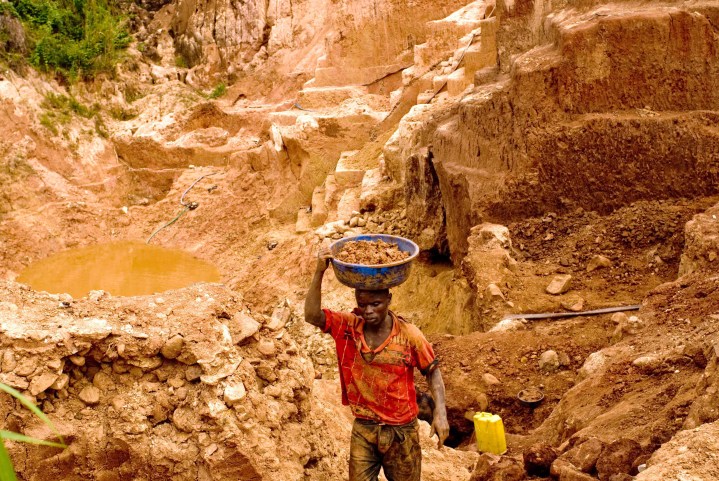
In recent months a flurry of Western and Eastern officials and leaders to African shores has showcased that the fourth scramble for Africa is under way. On the table are Africa’s valuable resources, its growing markets for foreign businesses to tap into, and its geopolitical influence.
As history has shown, with previous scrambles for the continent, African territories benefited very little, if at all. So, with the fourth scramble for Africa unfolding, will history repeat itself or can African states rise to the occasion and leverage this scramble for their developmental benefit?
The Europeans undertook the first scramble for Africa between 1884 and 1885. In a rush to secure and possess African territories, the continent was carved up among the European powers of the time, disregarding precolonial, social, political and economic systems. African lands were plundered, and Africans were bought and sold, all to build European economies. And moreover, many African men were enlisted to fight in the wars of their colonisers – thousands of African soldiers participated in both world wars.
The second scramble occurred against the backdrop of the Cold War as African liberation groups and leaders were fighting for independence from their colonial masters, with many, such as Libya, succeeding and birthing a wave of decolonisation across the continent.
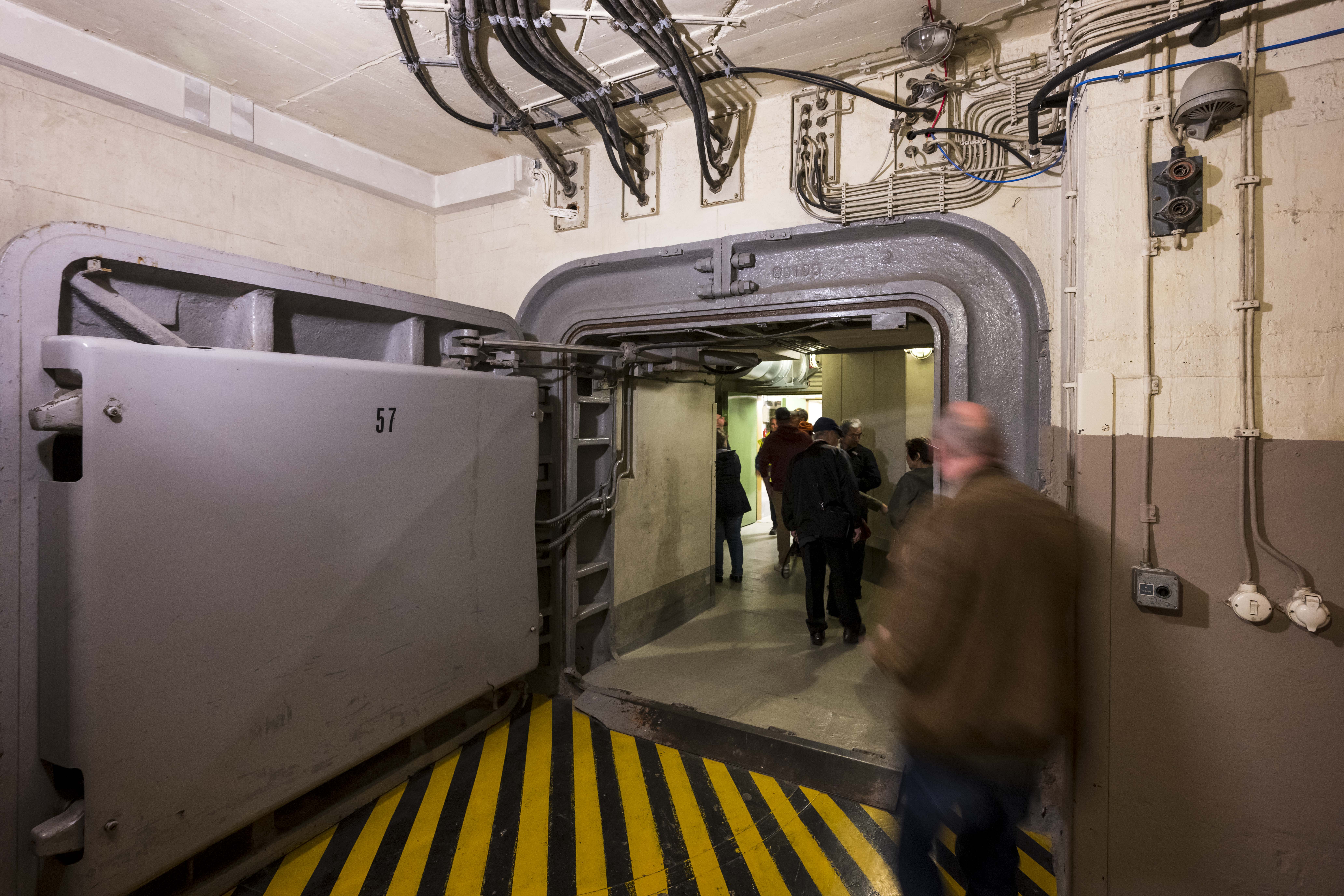
Visitors tour the Cold War-era former West German government bunker on 3 May 2023 near Bad Neuenahr-Ahrweiler. The bunker, built at the site of a railway tunnel inside hills, had the capacity to sleep 936 people, had more than 800 office rooms and would have served as a shelter to keep the West German government functioning in the event of war. (Photo: Thomas Lohnes / Getty Images)
As emerging African states began experimenting with independence and state power in the 1950s, the Soviet Union and the US slowly began superimposing their respective communist and capitalist ideologies and forcing African countries to align politically with one or the other. In jockeying for Africa’s backing, both sides advertised developmental and military aid to attract African support.
With the Europeans mostly out of the picture, new African leaders fearing regime instability turned to these two superpowers to shore up and secure their regimes. In doing so, the US, the USSR and Maoist-Communist China leveraged African regimes to wage proxy wars. Ultimately, this scramble for the continent reduced many newly independent African states to little more than tools to be used in great power struggles.
In the 1990s, as the Cold War dwindled, Russia, China and the US began reducing their engagement with Africa for various reasons. Mostly, the continent was not strategically relevant anymore; some would argue that it never was relevant in the first place. Instead, it had just been a peripheral battleground for the superpowers.
Following the collapse of the Soviet Union in 1990, Russia needed to focus internally on rebuilding itself; China prioritised building its economy and preparing to launch its “going out policy” for its economic rise; and the US, the remaining superpower and unipolar hegemon, jumped into the Middle East to confront Saddam Hussein during Desert Storm in 1991.
By the early 2000s, the third scramble for Africa began. This was mostly a solo scramble by China to secure African resources to feed its appetite for voracious economic development. China courted African countries with aid, concessional loans and developmental assistance to secure resources to sustain its economic growth. But, its rivals, Russia and the US, were still operating in the background.
Read more in Daily Maverick: Africa needs to strengthen its stance and claim sovereignty of its needs when dealing with China
When Vladimir Putin stepped in to lead Russia in 2000, he began working to restore the country to its former glory and, in doing so, sought to revive old Soviet relationships, across the globe, including Africa. The US, concerned with its Global War on Terror, did not place much of a premium on its relations with African nations. It mostly provided support to counter terrorist activities, resolve civil conflicts and promote democratic principles and human rights, as well as provide substantial amounts of aid to the region through Usaid. And by establishing the African Growth Opportunities Act (Agoa) in 2000, the US improved market access to Agoa signatories, creating market opportunities, especially for African textile businesses.
However, becoming increasingly concerned with China’s rise and growing presence in Africa, the US began paying closer attention to the continent. By the mid-2010s, the Americans were intent on engaging with Africa again. They began courting African states out of necessity to shore up and strengthen alliances as a multipolar world began to emerge.
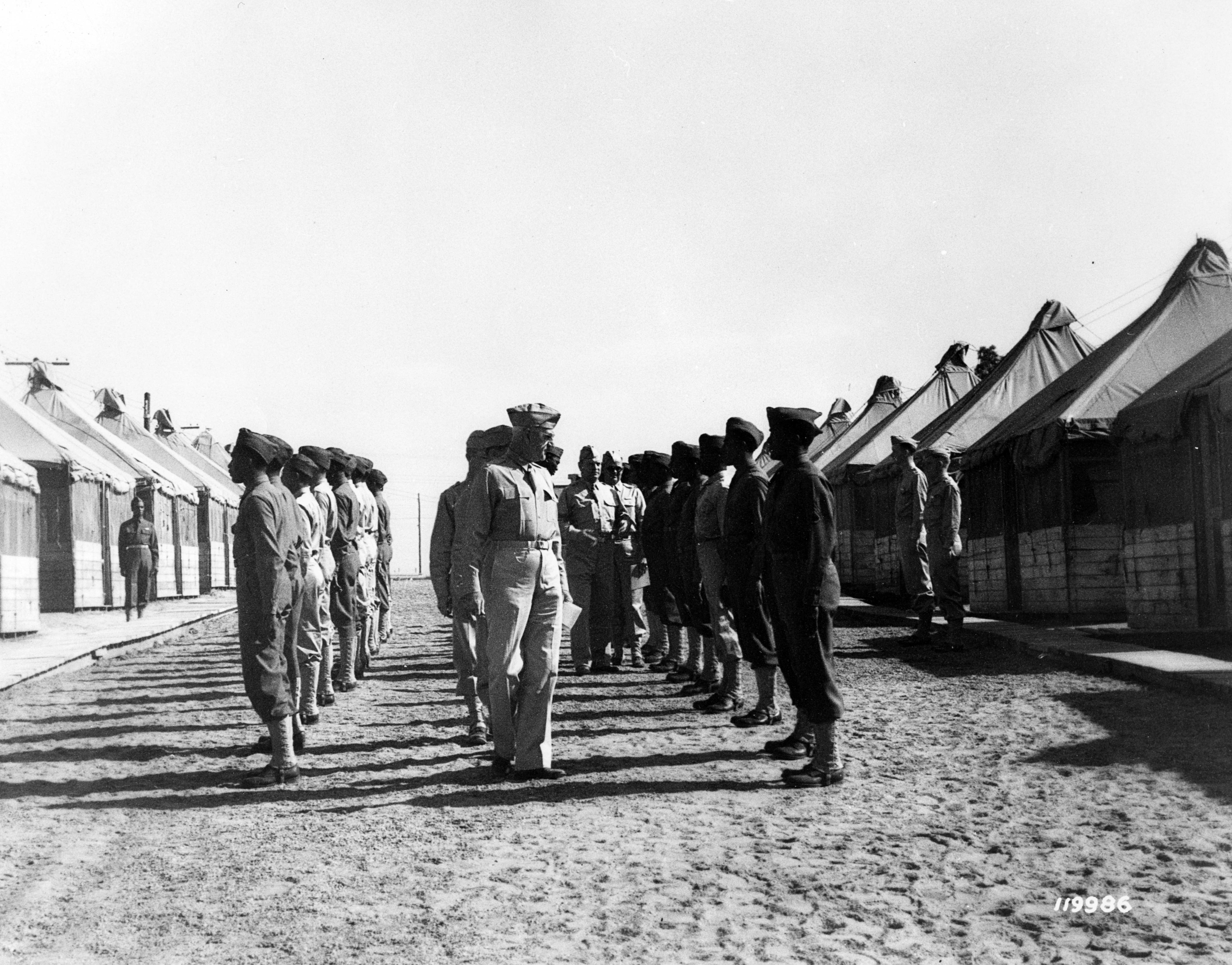
African-American soldiers stand at attention between barracks during World War 2 at Camp Claiborne in Louisiana in 1942. (Photo: Afro American Newspapers / Gado / Getty Images)
A multipolar, multicrisis world
Unlike the first three scrambles for Africa, the fourth scramble is occurring in an international system leaning towards multipolarity and facing multiple crises that have spawned multiple scrambles for Africa’s resources, markets and international political support.
Climate change and its ongoing devastating impact, which is being felt the world over, especially in Africa – as exemplified by the recent catastrophic flooding in the Eastern Democratic Republic of Congo (DRC) – has made it necessary for countries (especially signatories to the Paris Climate Accords) to transition to low-carbon economies to avoid a global climate catastrophe. But, key ingredients for energy transitions are critical minerals (such as bauxite, nickel, lithium, cobalt and copper) needed to develop green technologies.
And where are most of these minerals found?
In the Global South, especially in Africa, which is home to large amounts of critical mineral reserves. For example, the DRC is the Saudi Arabia of cobalt reserves. In this context, it should not come as a surprise that Western countries are again scrambling to secure Africa’s minerals for their economies, but this time they face competition from the East, notably China.
Without the majority African vote, [China] would not have been able to unseat Taiwan from the United Nations in 1971.
The Fourth Industrial Revolution is unfolding rapidly – artificial intelligence (AI) advances are making intelligent technology a reality, significantly affecting economies, societies and militaries worldwide. As the US (with support from its allies) and China face off in the race to be the tech superpower that dominates technology standard setting, digital infrastructure development and connectivity, the bifurcation of the internet could become a reality.
In what some geopolitical commentators call a “digital cold war”, a scramble for Africa’s largely untapped Internet Communication Technology (ICT) market is under way to build digital infrastructure and influence the development of digital governance policies to align with digital democracies or authoritarians.
Read more in Daily Maverick: Mining Indaba comes at critical time for West as China expands grip on Africa’s rare minerals
Just as the world began to reel from the Covid-19 pandemic and economies slowly started showing signs of recovery in late 2021, the tremors of Russia’s invasion of Ukraine in early 2022 reverberated across the world, spurring the re-emergence of the realpolitik Cold War mentality.
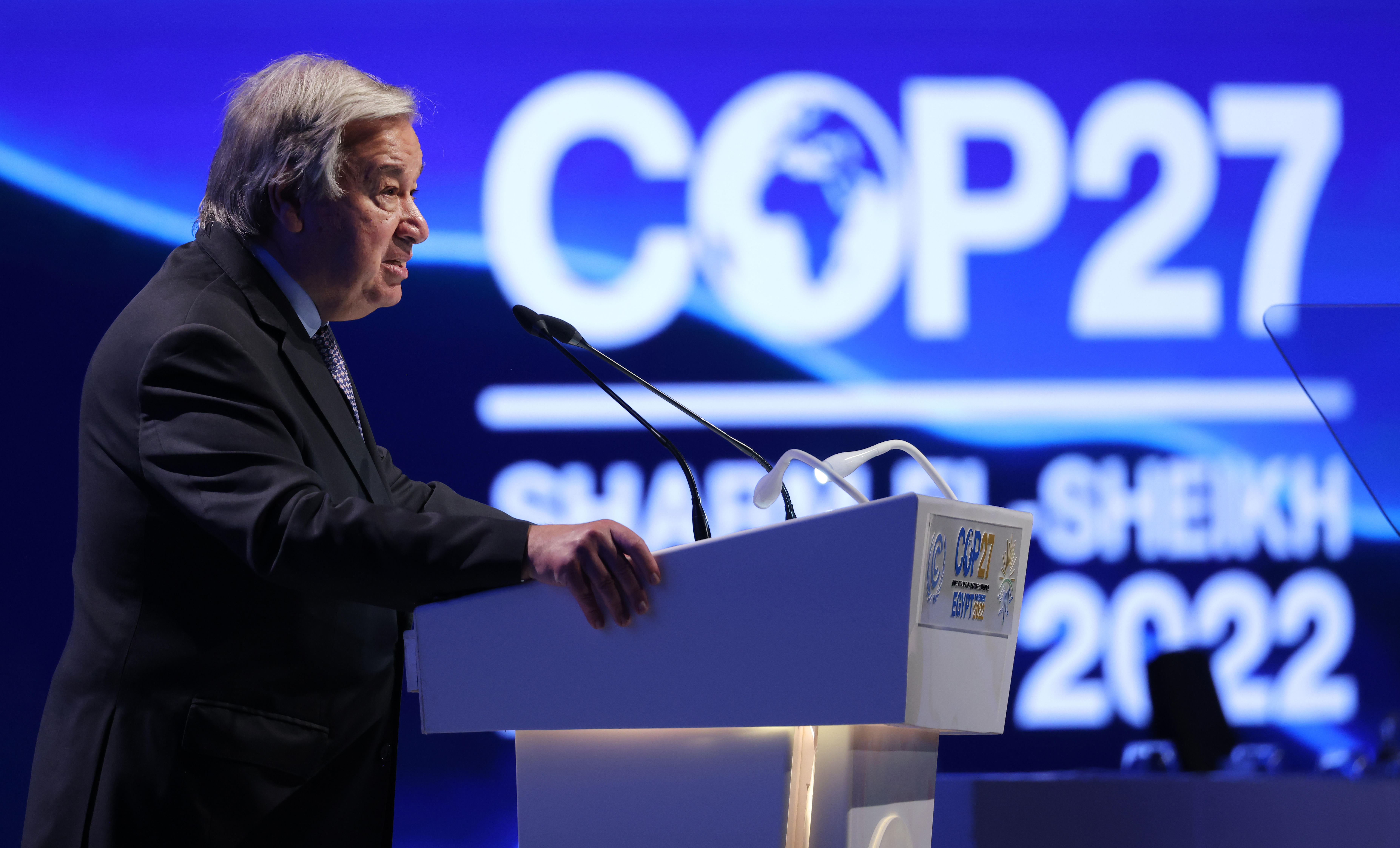
United Nations Secretary-General Antonio Guterres speaks before the presentation the new Climate TRACE platform, a highly detailed facility-level global inventory of greenhouse gas emissions, at the COP27 climate conference in Sharm El Sheikh, Egypt, on 9 November 2022. (Photo: Sean Gallup / Getty Images)
With a “you with us or against us” posturing, Western circles were shocked and dismayed by the split African vote on the first UN resolution against Russia’s invasion of Ukraine in March 2022. It seems that the West has conveniently forgotten that African states are sovereign nations not beholden to the bidding of any great power. As noted by Ebenezer Obadare, a senior research fellow for African studies at the Council on Foreign Relations, it is crucial for the US and its allies to:
Appreciate the contours of a changing geopolitical and African diplomatic landscape in which the reaction of African countries to international events can no longer be taken for granted. In this dynamic environment, whether in nurturing old alliances or cultivating new ones, the United States and EU must learn to sound less imperious, realising that the emergence of new powers on the international stage means that African countries now have more diplomatic options than before.
As the US and its Nato allies attempt to contain and confront Russia, a political scramble for Africa is under way. Consisting of 54 countries all holding seats in the United Nations, the African vote is decisive. Ask the Chinese; they know this very well. Without the majority African vote, they would not have been able to unseat Taiwan from the United Nations in 1971.
When the US and its European allies began to crack down on Russia with economic and political sanctions to make it withdraw from Ukraine, Russia retaliated by tightening the taps on its gas supply to the EU. As a result, the Europeans have scrambled to secure African gas and coal.
As expressed by Amani Abou-Zeid, the African Union Commissioner for infrastructure and energy, it’s a pity that “it had to take a war in Ukraine for the West to realise Africa is capable of providing energy through gas”.
In this context, some recall how in 2021, during the acute phases of the Covid-19 pandemic, the West failed to answer Africa’s call for help in securing sufficient vaccines to meet their populations’ needs, leading to what the World Health Organization (WHO) described as “vaccine apartheid” as developed countries hoarded vaccines. They question how it is that now, in their time of need, the West wants African countries to rush to provide them with gas and other energy sources.
Can Africa leverage its power to benefit its people?
Unlike the previous scrambles that grossly exploited African people and resources, now it should be asked whether African countries can, this time around, leverage this scramble to reshape asymmetrical relations with Western and Eastern powers?
And, importantly, can African states ensure that economic and trade deals entered into for its natural resources (particularly critical minerals) and access to its growing markets work to advance Africa’s industrialisation and structural economic transformation, as well as prevent the destruction of natural environments, human rights abuses and further exploitation of its citizens.
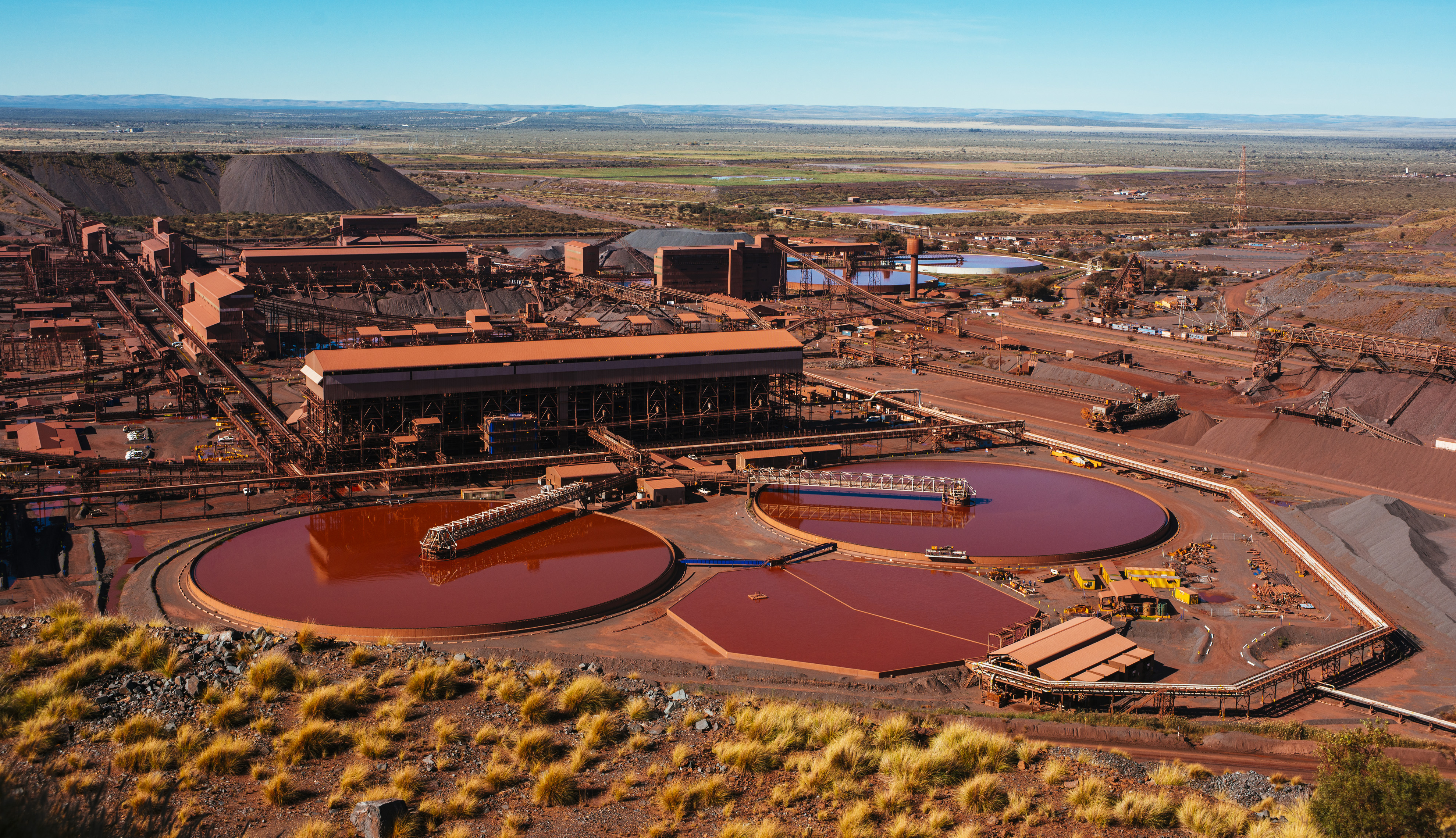
The iron ore processing plant at the Sishen open-cast mine, operated by Kumba Iron Ore, a unit of Anglo American, in Sishen, South Africa, on 22 May 2018. (Photo: Waldo Swiegers / Bloomberg via Getty Images)
Africa could leverage this scramble to its advantage if African leaders at a national, regional and continental level engaged with all international actors strategically, ensuring that African economic, environmental and developmental interests and needs are front and centre and not addendums to deals.
Read more in Daily Maverick: The new scramble for Africa: turning the energy crisis into opportunity
In navigating these tense geopolitical times, coherent and collective strategies for engaging with the various great powers are needed for African states to play hardball when necessary. African leaders and policymakers must collaborate to improve their bargaining power – the adage that a united Africa is a strong Africa must become a reality, especially if the African Union’s aspiration for the continent to become “a strong, united, resilient, peaceful and influential global player and partner with a significant role in world affairs” is to be realised.
If ever there was a time for good political and economic governance and strong leadership in Africa, it is now!
Our leaders must stand for Africans; they cannot let history repeat itself.
For too long, African states have been cast in the shadows of great power politics, serving as mere pawns to be bought, used and discarded without a second thought. For too long have others simply extracted from African lands and people for the prosperity of their territories. For too long…
As the fourth scramble for Africa unfolds, African states must set the rules for the game to work in their favour. Our leaders have an opportunity to leverage this scramble to propel Africa’s structural economic transformation. They should not squander it.
Instead, drawing inspiration from those who led before them – such as Kwame Nkrumah, Julius Nyerere, Ellen Johnson Sirleaf and Nelson Mandela – Africa’s leaders should rise to the occasion and show the world that Africa cannot, and will not, simply be taken advantage of for the benefit of others – it is a force to be reckoned with! DM
Dr Mandira Bagwandeen has experience working with think tanks, local and international corporate companies and lecturing at universities in South Africa. She is a Senior Research Fellow at the Nelson Mandela School of Public Governance at the University of Cape Town, where she focuses on Africa’s regional integration and industrialisation and China-Africa relations.



















Comments - Please login in order to comment.